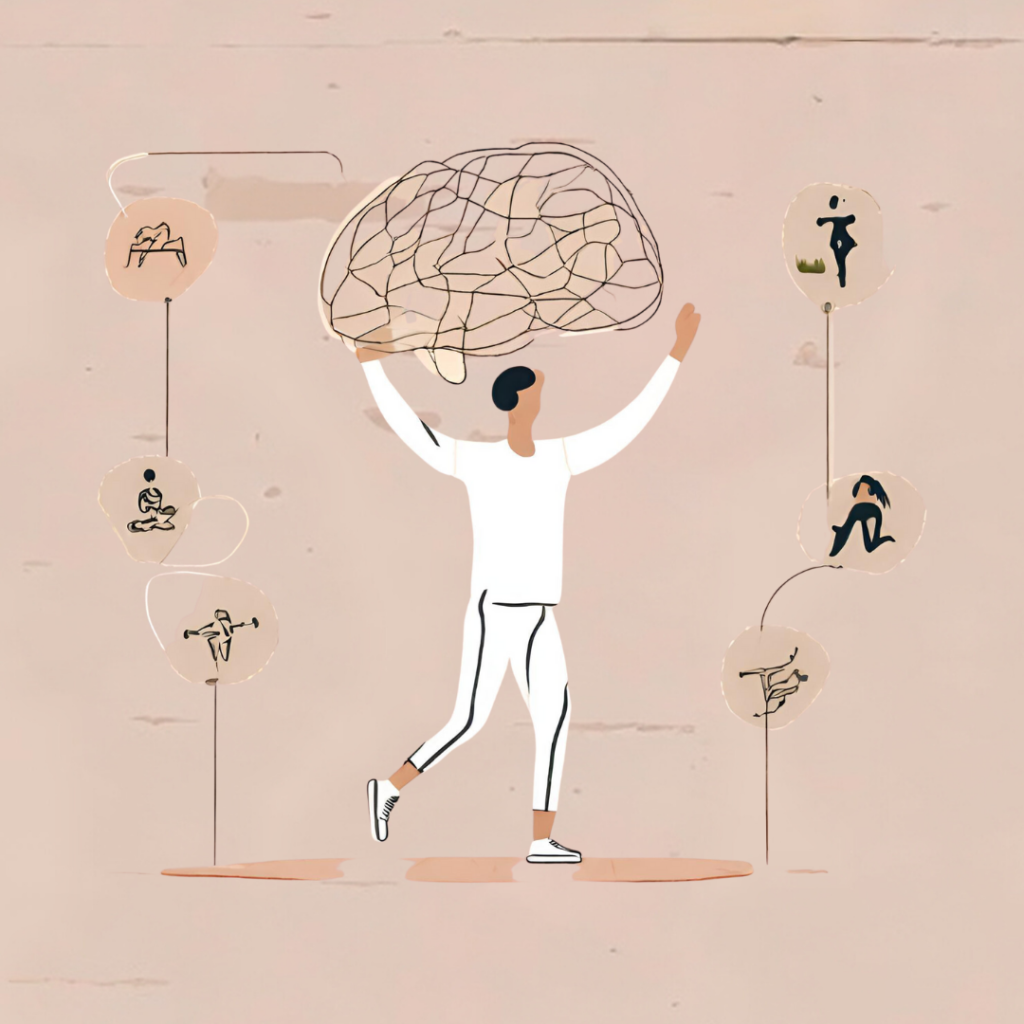
The quest for improved memory and cognitive function often leads us down the aisles of brain-boosting supplements, mnemonic techniques, and digital brain-training apps. While all these avenues hold potential benefits, there’s another natural and effective tool often overlooked – physical exercise. If you’re searching for a way to boost your memory, look no further than your own body’s ability to move. Delving into the compelling connection between physical activity and memory enhancement offers insights into exercise and memory improvement that are both practical and profound.
Understanding the Basics: What are Neural Connections?
Before we explore how boosting memory through physical activity works, it’s crucial to grasp some basics. Our brain consists of approximately 86 billion neurons. These nerve cells communicate with one another through synapses, forming intricate networks known as neural connections. Just as muscles can be strengthened with use, the pathways in our brain can be fortified through consistent stimulation, such as learning, experiences, and yes, even exercise. This foundational understanding sets the stage for appreciating the impact of exercise on brain health and memory.
How Does Exercise Influence Memory?
Exploring the transformative effects of physical activity on cognitive functions reveals a fascinating synergy between the body and brain.
Increase in Brain-Derived Neurotrophic Factor (BDNF)
Brain-Derived Neurotrophic Factor (BDNF) is a protein that plays a pivotal role in the survival of nerve cells, growth of new neurons, and the strengthening of existing neural connections. Studies have shown that aerobic exercise, such as running or swimming, leads to an increase in the levels of BDNF in the brain. This boost can enhance memory and overall cognitive function. How physical exercise enhances memory is partly through this natural fertilizer for your brain, making it more receptive to new information and better at retaining it.
Improved Hippocampal Volume
The hippocampus, a region in the brain primarily responsible for memory and learning, benefits significantly from regular exercise. Physical activity for better memory and cognitive function is not just a claim; it’s backed by research showing that exercise increases hippocampal volume, thereby slowing age-related memory decline and enhancing spatial memory.
Enhanced Blood Flow
Exercise increases the flow of blood throughout the body, including to the brain. This boost in circulation delivers a greater supply of oxygen and nutrients to the brain, aiding its overall health and cognitive functions. Understanding the impact of exercise on brain health and memory includes recognizing how enhanced blood flow plays a crucial role.
Reduction in Inflammation and Stress Hormones
Chronic stress and inflammation can be detrimental to the brain’s health, leading to memory lapses and cognitive decline. Regular exercise reduces levels of the body’s stress hormones, such as cortisol, and combats inflammation. This creates a more conducive environment for neural health and memory retention, highlighting the benefits of strengthening memory with exercise.
Incorporating exercise and memory improvement strategies into your lifestyle not only contributes to physical well-being but also enhances cognitive functions, including memory. By understanding the mechanisms through which physical activity impacts the brain and following practical tips to integrate exercise into daily life, individuals can enjoy the dual benefits of a healthier body and a sharper mind.

Practical Tips to Incorporate Exercise into Your Routine
Now that the profound impact of exercise on memory is clear, seamlessly integrating it into your daily life is the next step for cognitive enhancement and memory improvement. Here are practical ways to make exercise an integral part of your routine, focusing on methods that support the strengthening of neural connections and boost cognitive health.
- Start Small
For those new to exercising, it’s crucial to begin with manageable activities to prevent burnout or injury. Starting with short walks and gradually increasing the duration and intensity can build stamina and make exercise a sustainable part of your life. This approach supports the idea that even minimal physical activity can contribute to memory enhancement. - Incorporate Aerobic Activities
Aerobic exercises are particularly beneficial for boosting BDNF levels and, consequently, memory enhancement. Activities like jogging, swimming, cycling, or even dancing can be enjoyable ways to improve cognitive function. The diversity of aerobic exercises available means that everyone can find an activity that fits their lifestyle and preferences, further reinforcing the link between physical activity and improved memory. - Mix It Up
Including a blend of strength training, flexibility exercises, and aerobic workouts not only offers a holistic approach to physical health but also caters to different aspects of brain health. This variety ensures that exercise remains engaging and reduces the monotony that can lead to workout ruts, thereby promoting consistent engagement in physical activities known to enhance cognitive functions. - Stay Consistent
The benefits of exercise, particularly on memory and cognitive function, are most pronounced with regular practice. Establishing a routine that incorporates consistent physical activity is crucial. Whether it’s setting specific days for workouts or integrating activity into daily tasks, consistency is key to reaping the cognitive benefits of exercise. - Combine Learning with Movement
To maximize the cognitive benefits of physical activity, consider combining exercise with learning activities. Listening to educational podcasts during a jog or practicing a new language while stretching can enhance the memory-boosting effects of exercise. This method leverages the increased brain function associated with physical activity to facilitate learning and memory retention.

In Conclusion: The Mind-Body Connection
The holistic understanding of the mind-body connection emphasizes that our physical and mental well-being are deeply intertwined. Exercise is not just about achieving a healthier body; it’s also about nurturing a sharper, more resilient mind. The benefits of incorporating physical activity into our lives extend far beyond physical health, offering significant improvements in memory, cognitive function, and overall brain health.
As we recognize the power of physical activity to enhance cognitive functions, including memory, it becomes clear that adopting an active lifestyle is one of the most effective strategies for cognitive enhancement. The evidence supporting the benefits of exercise on brain health encourages a shift towards more physically active lifestyles for individuals aiming to boost their cognitive functions and memory. By prioritizing physical activity, we can enjoy a more vibrant, healthy life, both physically and mentally.

